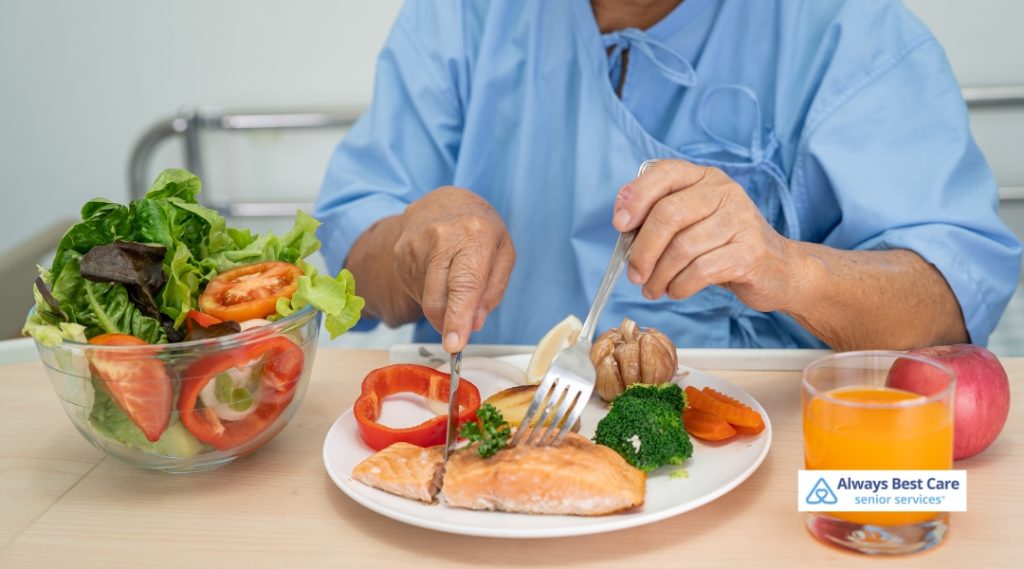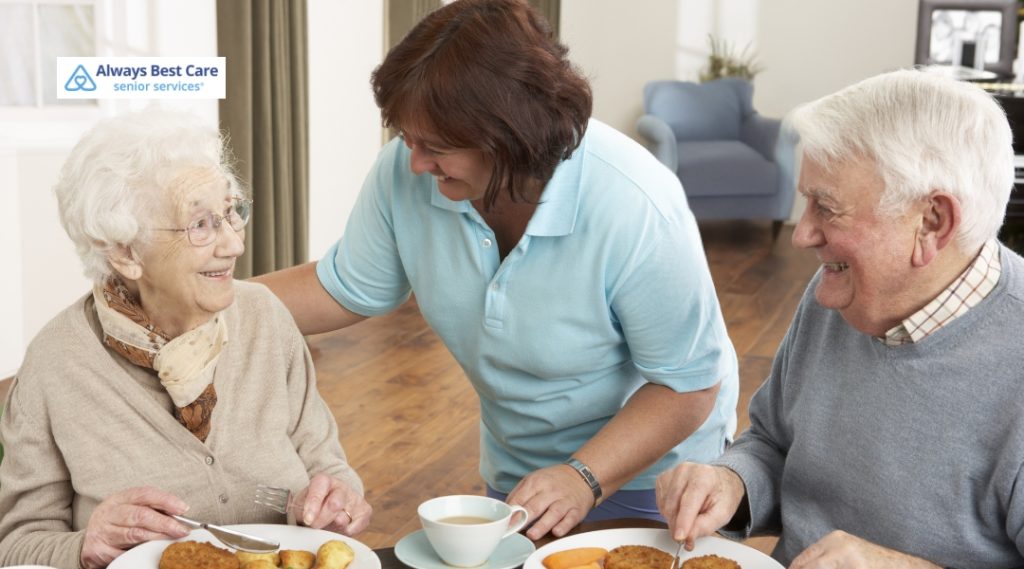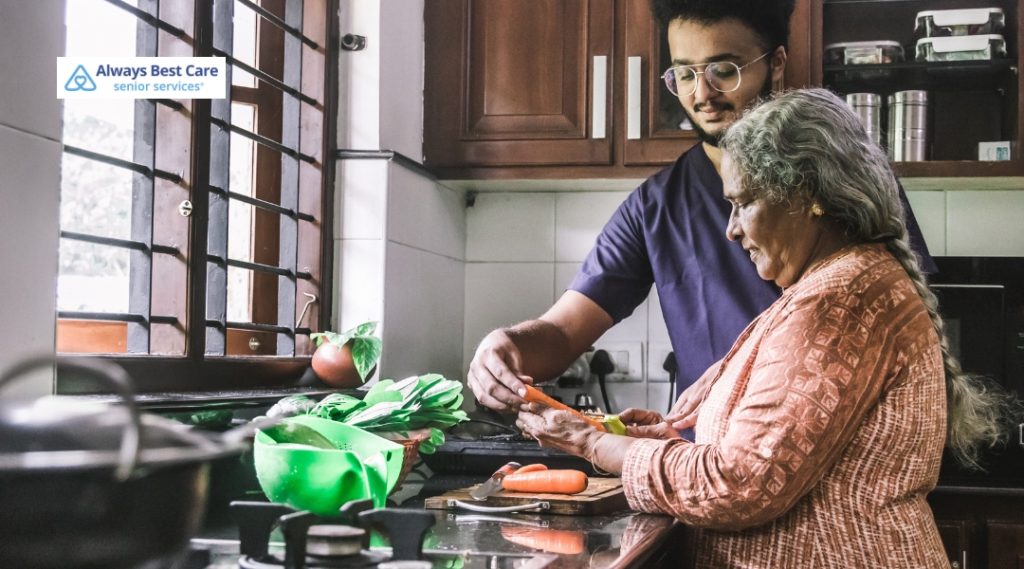Encouraging Healthy Eating: How to Boost Your Senior’s Appetite in Charleston, SC

As we age, maintaining a healthy appetite can become a challenge. Many seniors face a decline in their desire to eat due to various factors like changes in taste and smell, medication side effects, dental issues, or even feelings of loneliness.
At Always Best Care of Charleston, we understand the importance of proper nutrition for seniors and are committed to helping them enjoy meals again. In this article, we’ll look at some practical tips to boost your senior’s appetite and make mealtime a positive experience.
What you will learn:
- The common reasons behind decreased appetite in seniors.
- Practical tips for making meals more appealing and enjoyable.
- Strategies for encouraging healthy eating habits.
- How professional caregivers in Charleston, SC, can provide personalized support to boost your loved one’s nutrition and overall well-being.
Table of Contents
Understanding the Underlying Causes
Before we can help our seniors enjoy their meals, it’s crucial to understand why they might not be eating well.
Common reasons include:
- Medication side effects: Nausea or dry mouth from medications can suppress appetite.
- Dental issues: Ill-fitting dentures or mouth pain can make eating uncomfortable.
- Difficulty chewing or swallowing: This can be due to dental problems or chronic health conditions.
- Emotional factors: Depression, isolation, or grief can affect appetite.
- Loss of taste or smell: Age-related changes can make food less appealing.

Making Meals More Appealing
Seniors are more likely to eat when food looks and smells good. Here are some tips to make meals more appealing:
- Visual appeal: Use colorful fruits and vegetables, and serve food on attractive plates.
- Flavor boost: Add herbs and spices to enhance flavor without excess salt.
- Ambiance: Soft lighting and pleasant background music can create a cozy atmosphere.
Serving Smaller, More Frequent Meals
Large meals can be overwhelming for seniors with smaller appetites.
Instead, try offering:
- Three small meals and two to three snacks throughout the day.
- Nutrient-dense snacks: Yogurt, smoothies, cheese, or nuts provide calories and essential nutrients.

Eating Together
Eating is often a social activity. Sharing meals with your loved one can make a big difference.
If you can’t be there regularly, arrange for other family members, friends, or a caregiver to join them.
Making Eating Easier
If chewing or swallowing is difficult, focus on:
Soft foods: Scrambled eggs, mashed potatoes, oatmeal, or soups.
Proper denture fit: Ensure dentures fit well and address any mouth pain.
Texture adjustments: Adjust food textures or temperatures for comfort.

Planning Ahead and Getting Creative
Meal planning can reduce stress and encourage variety.
Involve your loved one in choosing meals and groceries so they feel more engaged.
Preparing meals ahead of time and trying new recipes can help renew their interest in eating.
How Always Best Care of Charleston Can Help
Maintaining good nutrition doesn’t have to be a solo task. Our experienced caregivers can assist with meal planning, grocery shopping, and preparing nutritious meals tailored to your loved one’s preferences and dietary needs.
Whether it’s encouraging hydration, adjusting meals for swallowing difficulties, or providing companionship during mealtime, we’re here to support health and independence.

FAQ
Q: What are the common reasons for decreased appetite in seniors?
A: Common reasons include medication side effects, dental issues, difficulty chewing or swallowing, emotional factors, and loss of taste or smell.
Q: How can I make meals more appealing to seniors?
A: Use colorful fruits and vegetables, enhance flavors with herbs and spices, and create a cozy atmosphere with soft lighting and music.
Q: What types of meals are best for seniors with smaller appetites?
A: Serve smaller, more frequent meals, including nutrient-dense snacks like yogurt or nuts.
Q: How can social interaction help with appetite?
A: Eating with others can make mealtime more enjoyable and increase interest in food.
Q: What support services are available for seniors struggling with appetite loss?
A: Always Best Care of Charleston offers meal planning, grocery shopping, and meal preparation assistance tailored to individual needs.
Schedule a Complimentary Consultation at Always Best Care of Charleston!
If your aging loved one is struggling with appetite loss or needs support with daily routines, contact Always Best Care of Charleston at (843) 996-4498 to schedule a care consultation. Our compassionate caregivers are here to support health, wellness, and independence—starting right at the kitchen table.





